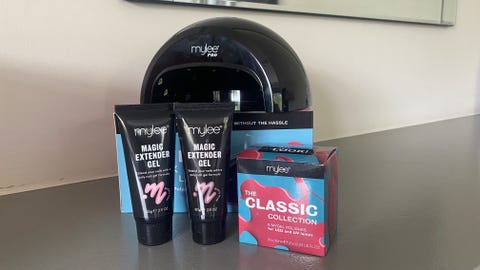
Revitalize Your Hair: Top Care Techniques
In the grand tapestry of personal grooming and self-expression, our hair plays a starring role. It’s a reflection of our personality, a canvas for our style, and a versatile accessory that we carry with us every day. However, the journey to healthy, vibrant hair can be a nuanced one. Enter the realm of haircare, a world where science meets art, and where simple yet effective techniques can help you unlock the full potential of your locks.
Understanding Hair Types
Before delving into the techniques of haircare, it’s essential to understand the unique qualities of your hair. Hair types can be broadly categorized into straight, wavy, curly, and coiled. Each type has specific care requirements.
- Straight Hair: This type often requires less moisture and can become oily quickly. Using a gentle, sulfate-free shampoo and a lightweight conditioner can help maintain its luster.
- Wavy Hair: Wavy hair benefits from anti-frizz products and gentle scrunching techniques to enhance the waves.
- Curly Hair: Curly hair tends to be dry, so hydrating products like leave-in conditioners are beneficial. Avoid over-shampooing, as it can strip natural oils.
- Coiled Hair: Coiled hair thrives with rich, moisturizing products and protective styles like braids to retain moisture.
The Power of a Balanced Diet
Luminous, healthy hair starts from within. A balanced diet rich in vitamins and minerals, particularly vitamins A, C, D, and E, as well as biotin and omega-3 fatty acids, nourishes your hair follicles and promotes growth. Incorporate foods like salmon, nuts, eggs, spinach, and carrots into your diet for a hair-boosting effect.
Effective Cleansing
Proper haircare begins with the right cleansing routine. Use a shampoo that suits your hair type. Those with oily hair may opt for daily or frequent shampooing, while individuals with dry hair should shampoo less frequently to avoid stripping away natural oils. Gently massage your scalp during washing to improve blood circulation and promote healthy hair growth.
Conditioning for Softness
A good conditioner is your hair’s best friend. Apply it from mid-length to the tips, avoiding the scalp. Leave it on for a few minutes to allow it to penetrate the hair shaft. For an extra boost of moisture, consider using a deep conditioning mask once a week.
Hydration and Moisture
Proper hydration is essential for hair health. The moisture content in your hair keeps it soft and manageable. Using leave-in conditioners, serums, or hair oils can help lock in moisture and protect your hair from external stressors like pollution and UV rays.
Heat Styling Safely
While heat styling tools like hairdryers, curling irons, and straighteners can transform your look, excessive heat can lead to damage. Always use a heat protectant before styling to shield your hair from high temperatures. Additionally, opt for the lowest effective heat setting and avoid daily heat styling to prevent harm.
Trim Regularly
Regular trims are a simple yet effective haircare technique to maintain healthy hair. Trimming removes split ends, prevents breakage, and encourages hair growth.
Protective Styling
Protective styles, such as braids, twists, and buns, can help preserve your hair’s health. They reduce exposure to environmental factors and minimize friction, which can lead to breakage. When opting for protective styles, ensure they are not too tight to avoid stressing the hair shaft.
Scalp Health
A healthy scalp is the foundation of strong, vibrant hair. Regularly massaging your scalp increases blood circulation, which nourishes the hair follicles. Additionally, scalp massages can relieve stress and promote relaxation.
Choosing the Right Products
In the world of haircare, the right products can make all the difference. Using sulfate-free shampoos, paraben-free conditioners, and hair serums with natural ingredients can contribute to healthier hair. If you have specific concerns, such as dandruff or hair loss, look for products tailored to address those issues.
Stress Management
Lastly, don’t underestimate the impact of stress on your hair. High-stress levels can lead to hair loss. Engage in stress-reducing activities like meditation, yoga, or deep breathing exercises to maintain your hair’s health.
In conclusion, haircare is an art and science, where the right techniques and products can help you achieve the hair of your dreams. Understanding your hair type, adopting a balanced diet, and following proper cleansing and conditioning routines are fundamental steps. Remember, healthy hair is a journey, not a destination, and consistent care will yield the best results. So, embark on this haircare adventure with confidence and celebrate the luxurious, radiant hair you deserve.


